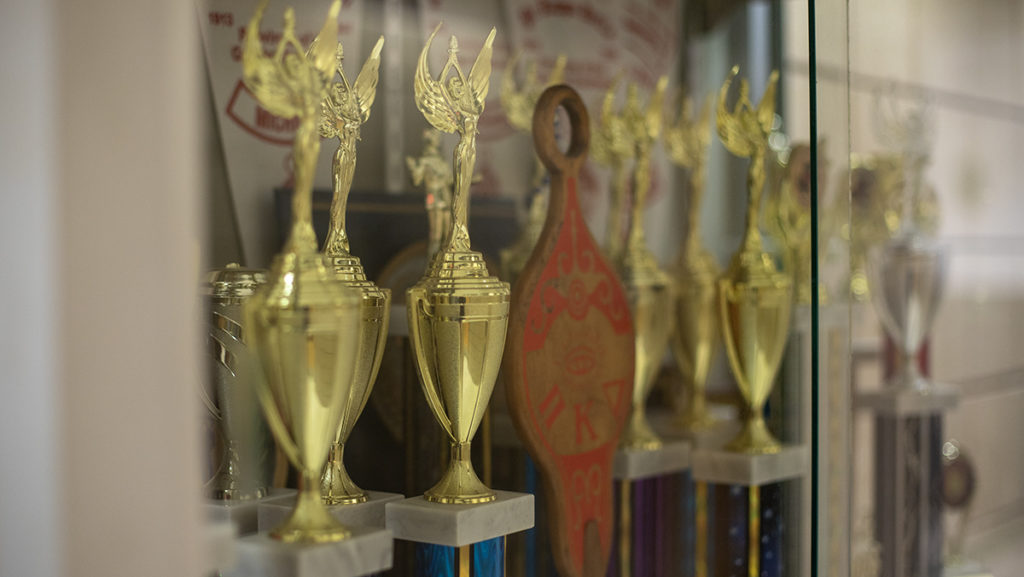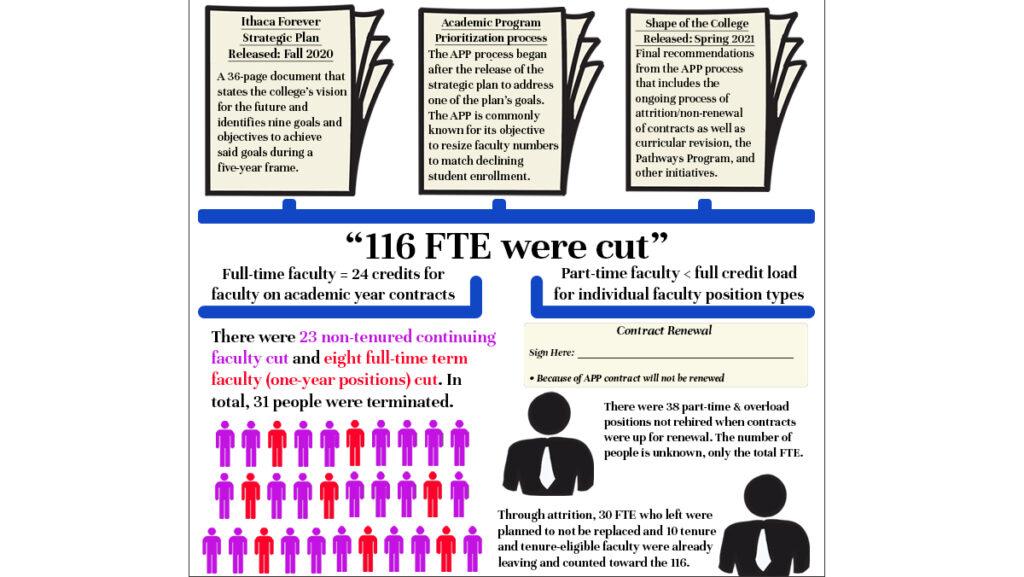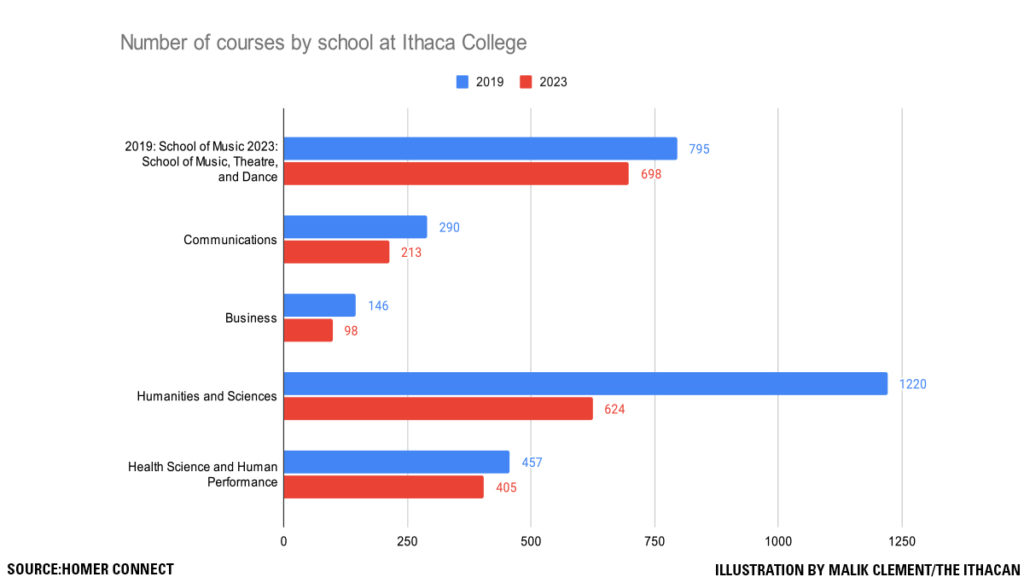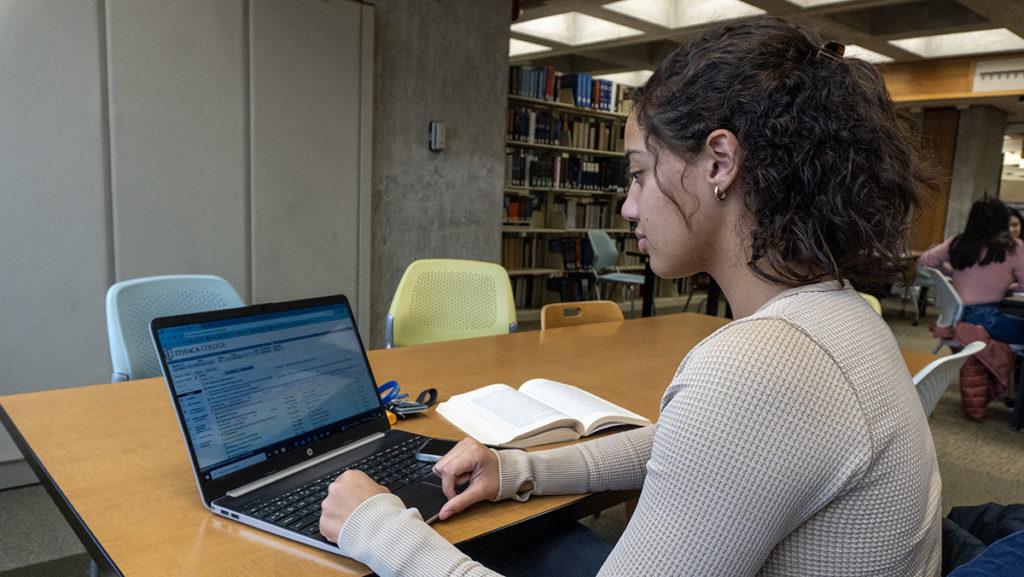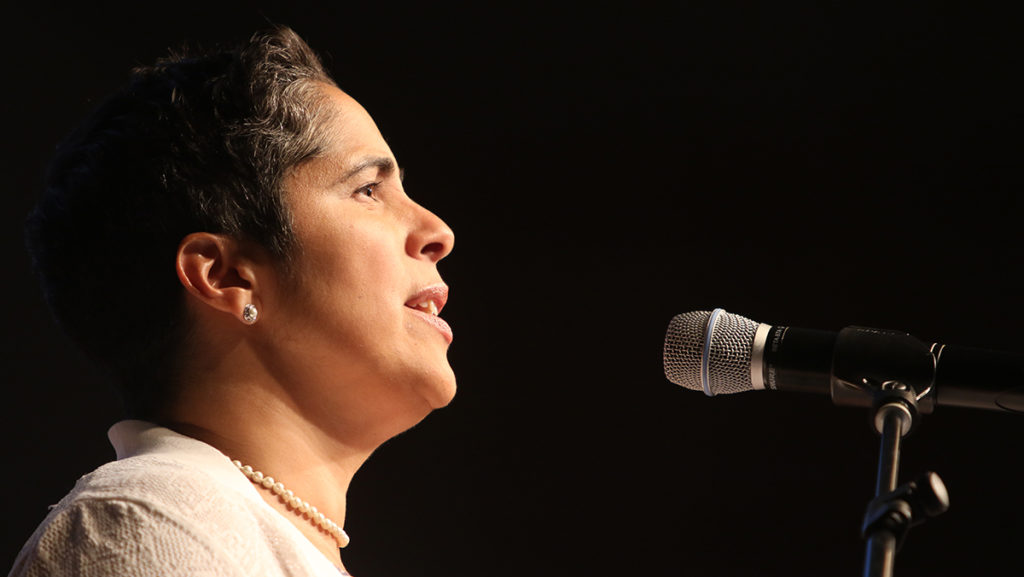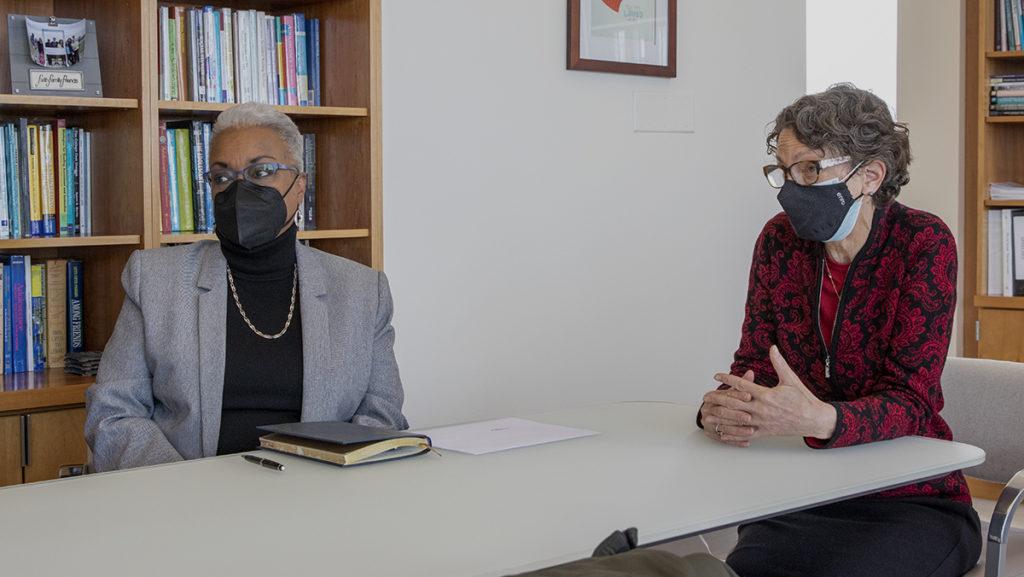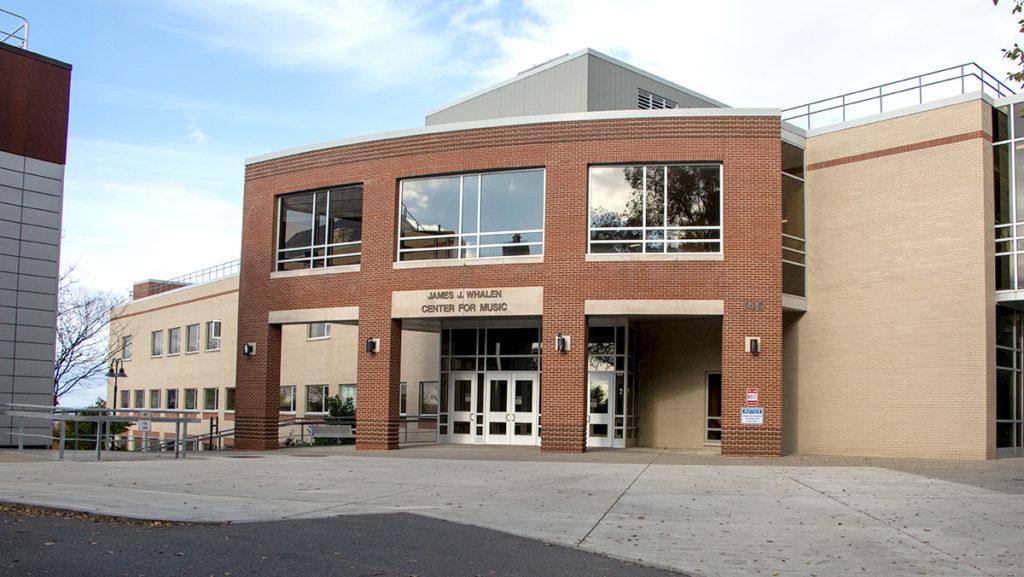Since the Ithaca College Speech and Debate Team coach was forced to retire as a result of the Academic Program Prioritization process, the team has been unable to operate as students struggle to find a new adviser.
The official name for the debate team is the Forensics Program, meaning the study of evidence, and it has been at the college since its founding in 1932. Scott Thomson, retired assistant professor in the eliminated Department of Communication Studies, said he was hired in 2000 to be the debate coach as well as teach. At the end of the 2021–22 academic year, the college eliminated the department as part of the APP process. Thomson said that because he was not tenured, he was forced to leave but was able to retire. This left the debate team in a precarious place, dependent on a volunteer to keep it going.
“The provost assured us, assured students, that the debate team would continue,” Thomson said. “So, what they tried to do is to find a faculty person to take it, somebody who was remaining at Ithaca College. They did find a person. … Then during the last summer, I’m not sure what happened, what complication she had in her life, but she decided then that she didn’t want to do it. So that left the team sort of high and dry.”
Thomson filed a lawsuit against Melanie Stein, provost and senior vice president of academic affairs, and the college in November 2022 for age discrimination and breach of contract.
Junior Skyler Cepek was the president of the debate team when Thomson was cut from his position and she said she tried to find someone to continue his work.
“I tried my best to keep the debate team around and alive,” Cepek said. “We needed a faculty member or faculty adviser in order for the team to run and so I asked around and couldn’t get anyone to do it.”
Claire Gleitman, dean of the School of Humanities and Sciences, said via email that the debate team will begin again once a faculty member volunteers to be its adviser.
“The debate team is not cut,” Gleitman said via email. “It is just currently on hiatus until a faculty member comes forward expressing a desire to be the faculty advisor for the club. … I don’t know what kind of outreach the students are engaged in, although I can tell you that generally, students in clubs do seek out their own faculty advisers. Finding one would not necessarily be contingent upon a new faculty hire. It would just require finding a faculty member who has an interest in this activity.”
All student organizations, whether they are clubs registered in the Office of Student Engagement or co-curriculars within departments, are required to have an adviser.
Thomson said that being the debate team coach was a paid position and is at many institutions, including Cornell University which has six faculty leaders in its Speech and Debate program and Binghamton University which has three staff members on its Speech and Debate Team. Thomson said the position requires traveling to over a dozen tournaments each academic year, including tournaments during spring break.
“No one in their right mind would volunteer to direct a forensics program,” Thomson said via email. “If they rely on volunteers – there will never be a team.”
Stein said the debate team has not had an adviser who was paid to be the coach.
“The model has been to have a faculty member who expresses interest serve as an advisor, similar to the way in which model UN has functioned,” Stein said via email.
In a 2004 contract-renewal review of Thomson’s position given to The Ithacan the memorandum stated that Thomson accepted the position which entailed a 10-credit teaching load each semester and directorship of the Forensics Program.
“S/he [a tenure eligible faculty member] would have less time and energy to devote to building a bridge between the academic discipline and the competitive enterprise of intercollegiate debate,” the memorandum stated. “In our judgement, a five-year, non-tenure eligible position (with possibility of renewal) would be most appropriate to recruit and keep an effective forensics director.”
Current students and Thomson are not the only ones disheartened by the lack of action to keep the debate team running. Christopher Tolve ’21 said he was a member of the debate team for all four of his years at the college. He said his first-year seminar was taught by Thomson, who then recruited Tolve to the team.
“I think my memories from the debate team were some of my most memorable from my time at Ithaca,” Tolve said. “Debate was inclusive and accepting and probably for that reason, people felt committed to it. It formed an authentic community. … I’d be skeptical that they’re going to find somebody who is as qualified and as committed and enthusiastic to the job as Scott Thomson.”
Tolve said the money the college is saving from firing Thomson is not worth the loss of the debate team and other programs.
“[The college is] going to try to convince everybody that they can cut costs and cut staff and faculty without also diminishing the quality of education and extracurricular activities but that’s just a lie,” Tolve said. “If that was true, then why did they have Scott in the first place? He was providing value. Now, they’re getting rid of that and they don’t have to.”
Sean Themea ’16 said he attended an alumni event in Austin, Texas, in January — one of the stops on President La Jerne Cornish’s ongoing Inaugural Tour. Themea said he was on the debate team from 2013 to 2015 and when he asked Cornish about the future of the debate team, she assured him the college is committed to filling the position.
“If [the college is] not going to pay anyone to run it, then that’s not a real commitment,” Themea said. “That is an empty promise. … If you don’t have the debate team, you’re really taking away opportunities for people who want to communicate and want to use communication as a tool to make the change they want to see in the world.”
Themea said that during his time on the debate team, he traveled to Miami and Estonia, and saw his peers travel to locations like Moscow and Jamaica as well as many locations in northeastern U.S.
“It was one of the most challenging things that the college offered because it forced us to learn how to think on our feet, defend our arguments based on logic and emotion and really master the art of persuasion,” Themea said. “I’m the number two at a $15 million nonprofit, and I use the skills from the debate team [and] from the communications program every day to try and make the impact that I want to make on the world.”
Editors note: Part of senior Skyler Cepek’s quote was removed which said, “And when I went to the dean, her answer to me was, ‘Come back in two years, we’re hiring new people in two years.’ … It’s not like she made any effort to reach out to any of the faculty members and ask on our behalf.”
After publication The Ithacan was informed that others involved with the debate team had been in contact with Claire Gleitman, dean of the School of Humanities and Sciences, and had been told that future faculty hires may be more interested in volunteering to advise the debate team but Cepek did not have direct conversations with the dean.


